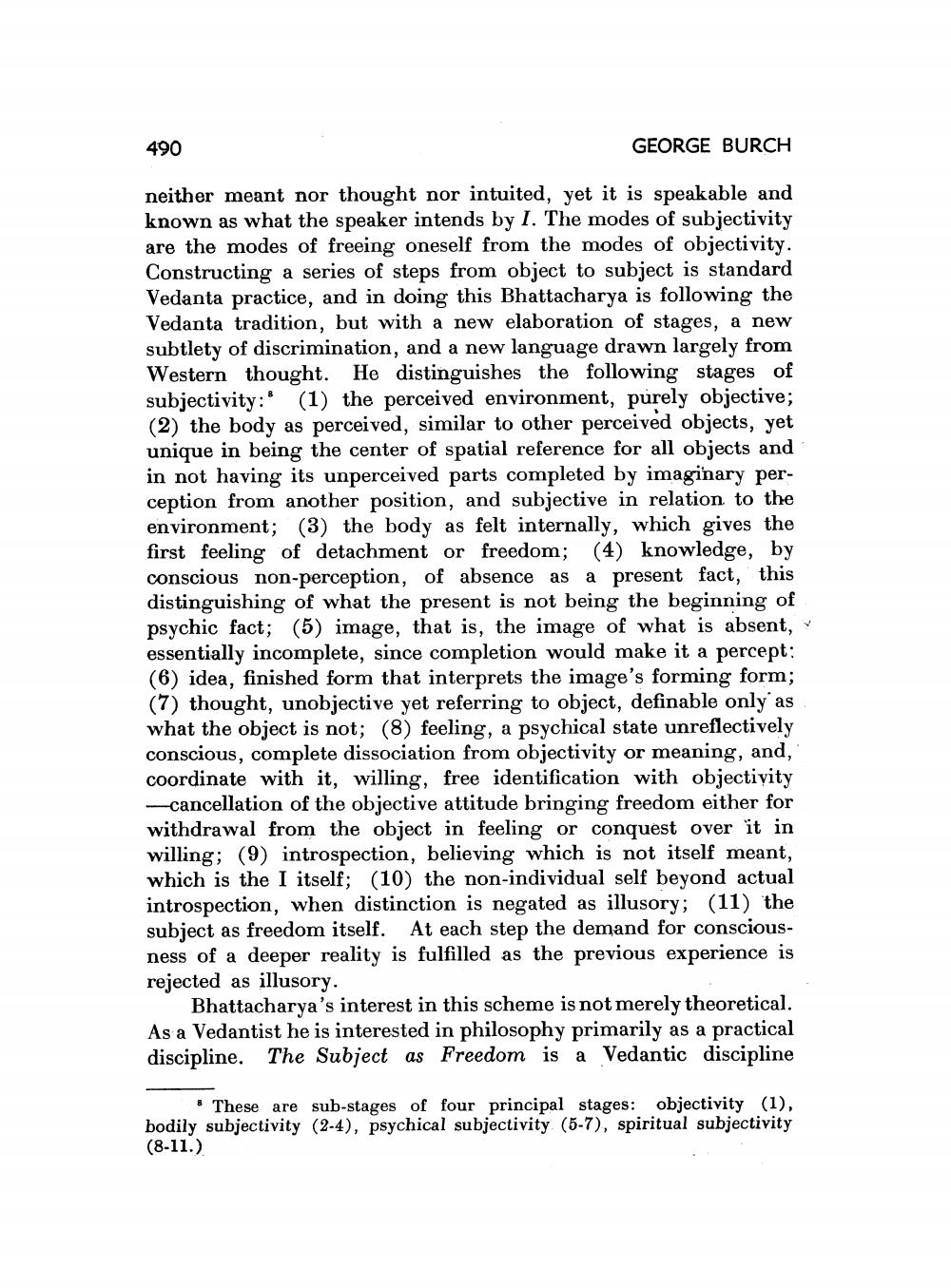________________
490
GEORGE BURCH
neither meant nor thought nor intuited, yet it is speakable and known as what the speaker intends by I. The modes of subjectivity are the modes of freeing oneself from the modes of objectivity. Constructing a series of steps from object to subject is standard Vedanta practice, and in doing this Bhattacharya is following the Vedanta tradition, but with a new elaboration of stages, a new subtlety of discrimination, and a new language drawn largely from Western thought. He distinguishes the following stages of subjectivity: (1) the perceived environment, purely objective; (2) the body as perceived, similar to other perceived objects, yet unique in being the center of spatial reference for all objects and in not having its unperceived parts completed by imaginary perception from another position, and subjective in relation to the environment; (3) the body as felt internally, which gives the first feeling of detachment or freedom; (4) knowledge, by conscious non-perception, of absence as a present fact, this distinguishing of what the present is not being the beginning of psychic fact; (5) image, that is, the image of what is absent, essentially incomplete, since completion would make it a percept: (6) idea, finished form that interprets the image's forming form; (7) thought, unobjective yet referring to object, definable only as what the object is not; (8) feeling, a psychical state unreflectively conscious, complete dissociation from objectivity or meaning, and, coordinate with it, willing, free identification with objectivity -cancellation of the objective attitude bringing freedom either for withdrawal from the object in feeling or conquest over it in willing; (9) introspection, believing which is not itself meant, which is the I itself; (10) the non-individual self beyond actual introspection, when distinction is negated as illusory; (11) the subject as freedom itself. At each step the demand for consciousness of a deeper reality is fulfilled as the previous experience is rejected as illusory.
Bhattacharya's interest in this scheme is not merely theoretical. As a Vedantist he is interested in philosophy primarily as a practical discipline. The Subject as Freedom is a Vedantic discipline
These are sub-stages of four principal stages: objectivity (1), bodily subjectivity (2-4), psychical subjectivity (5-7), spiritual subjectivity (8-11.)




